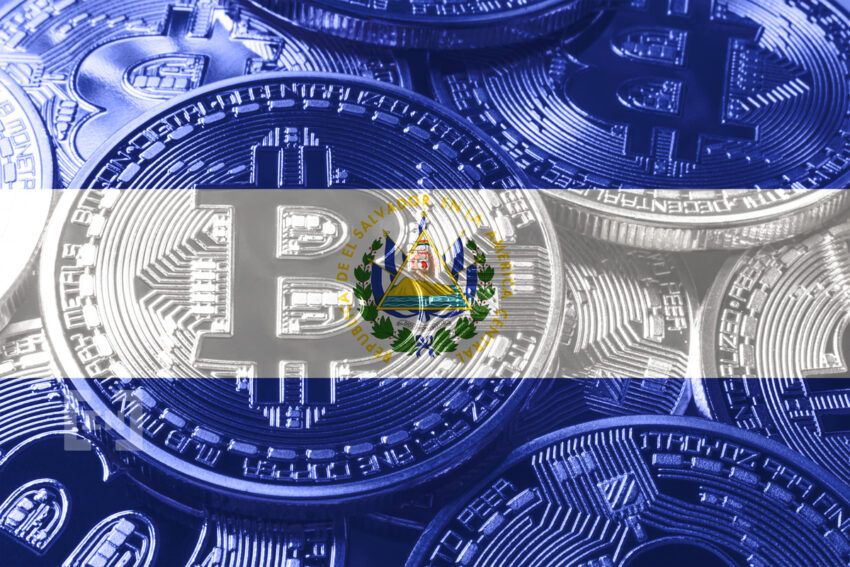Back in 2021, El Salvador became the first country to adopt Bitcoin as official legal tender. It was a turning point, with many people either praising or condemning the move. Lately, governments have cracked down on Bitcoin. And the current political climate, in the United States and elsewhere, could have a huge impact on how we talk about El Salvador and the cryptocurrencies it adopted.
Since El Salvador is so closely intertwined with the US politically and economically, any shifts in these arenas can have a huge effect. It will be interesting to see how El Salvador’s decision pays off, and whether other countries follow suit.
El Salvador’s Bold Move
El Salvador made a splash when it adopted Bitcoin as an official currency. The unprecedented decision stands to benefit many of its citizens.
According to PwC, around 70% of the population of El Salvador lacks access to a bank account. On the other hand, there are 9.94 million cell phone connections in the country, or among 156.5% of the population. Therefore, transitioning to a monetary system that only needs a smartphone app to work could be highly advantageous.
Additionally, remittances constitute over 20% of the country’s GDP, according to the World Economic Forum. Given how much money goes to fees for international wire transfers, Bitcoin could be an attractive alternative.
El Salvador adopted Bitcoin as its national currency mainly to combat poverty and aid unbanked citizens. The government hoped to improve economic opportunities for citizens, allowing them access to digital currency through their smartphones. This would connect them with financial services not previously available. Additionally, it would help foster a more stable economy by reducing inflation risk.
Moreover, the adoption of Bitcoin as a national currency could also curb money laundering and corruption, as the government could monitor transactions more easily. The use of Bitcoin could also attract foreign investment, further stimulating economic growth.
The Current Political Environment
Unfortunately, since adopting bitcoin, El Salvador has plunged into political turmoil. Currently, there is instability in the government, conflicting interests among political parties, and an uncertain economic future. Yet despite the instability and the spike in gang-related violence in 2022, tourism has gone up by 30%.
While new opportunities and better access to digital services are available, it is unclear whether they have caught on. El Salvador’s poverty rate is still at 26.6%, actually higher than before Bitcoin became legal tender. Central bank data shows that cryptocurrencies also make up under 2% of foreign remittances. And any rise in GDP from tourism seems insignificant at present.
Bitcoin’s volatility has also had widespread consequences. And these have been most jarring with the currency’s downward swings. Bitcoin’s value has yet to return to the levels from September 2021 when El Salvador began buying in. The average price was around $45,000 per bitcoin, and the price has recently rallied to about $28,000.
Potential Conflicts of Interest
Recent reporting in the Wall Street Journal noted that two key people in the rise of Bitcoin in El Salvador, Max Keiser and Stacy Herbert, launched a popular financial news show on Russian state television. They claim to have cashed in on the crypto boom. Apparently, they are the founding backers of a crypto exchange helping manage El Salvador’s sovereign debt sale linked to Bitcoin. In addition, they have become advisors to the Salvadoran government on its adoption of Bitcoin and investing in crypto ventures.
The couple first visited El Salvador in 2021 and appear heavily involved in cryptocurrency-related projects in the country. Their involvement brings with it a certain degree of conflict of interest. They have positioned themselves to benefit from their investments if El Salvador’s use of Bitcoin succeeds.
This kind of ethical conflict is not new to crypto. In fact, the lack of regulation worldwide is one of the reasons governments are tackling it now. As more people use (and abuse) crypto and other investments, the more governments will need to take action. The question at present is whether these laws will help or hurt the industry.
Regulation, Bans, and the Future of Crypto
Several states in the U.S. have proposed bans on crypto mining. The SEC has cracked down on many companies and individuals for actions they deem illegal. Further, some politicians at the federal level have said they want to ban crypto altogether. If this hostility prevails, that could lead to innovation elsewhere. But whether El Salvador would be on the receiving end is hard to say.
Still, two years is not a lot of time to expect full-on adoption of a currency that is still new. Most texts on cryptocurrency have yet to become available in Spanish. And knowledge of the asset and how it works often fails to reach lower-income individuals, regardless of geography.
In 2022, 10,000 students learned about cryptocurrency and its many uses. This kind of education, if continued, might bolster adoption as young people begin to understand and use the technology.
Looking Ahead as Other Countries Weigh Crypto
El Salvador is leading the way on cryptocurrency adoption, and its success (or failure) could have an outsized impact on countries considering implementing a digital currency as legal tender. As we look to El Salvador’s future, it’s clear that the political environment has played a role in how the people talk about their national currency. Depending on how things unfold from here, other countries may be encouraged (or discouraged) to implement their own cryptocurrency projects.
But with Bitcoin’s value on the rise and adoption underway, it may be too soon to jump to any conclusions.
Trusted
Disclaimer
Following the Trust Project guidelines, this feature article presents opinions and perspectives from industry experts or individuals. BeInCrypto is dedicated to transparent reporting, but the views expressed in this article do not necessarily reflect those of BeInCrypto or its staff. Readers should verify information independently and consult with a professional before making decisions based on this content. Please note that our Terms and Conditions, Privacy Policy, and Disclaimers have been updated.


